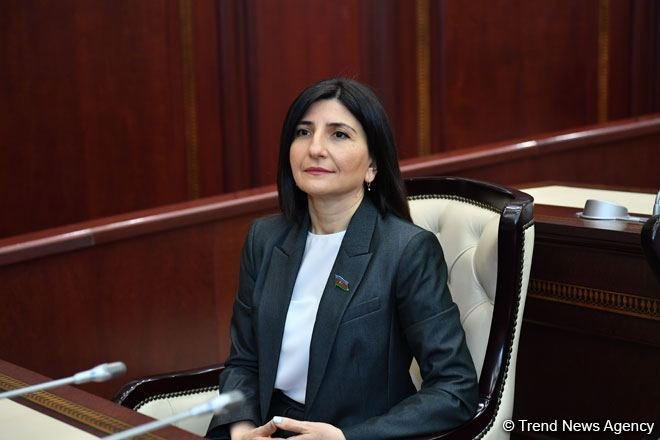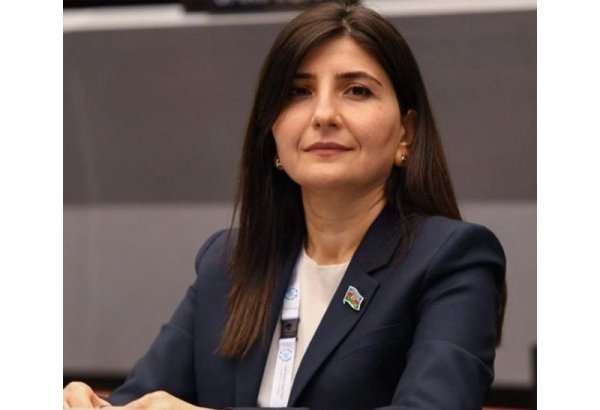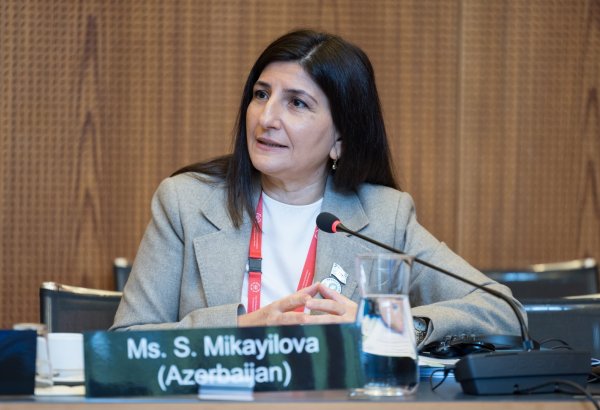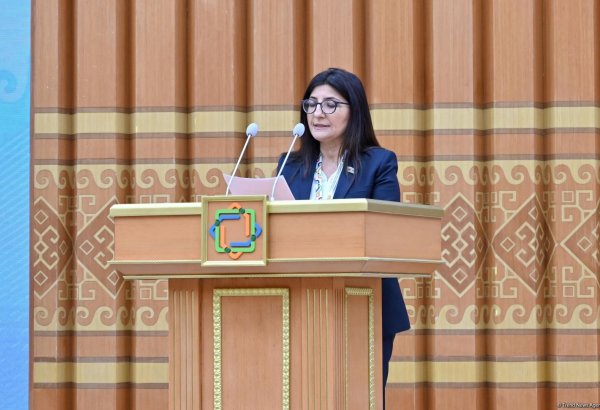Nizami Ganjavi’s views on women, that were several hundred years ahead of those of his contemporaries, come across as a holistic philosophical system, said Azerbaijani MP Sevil Mikayilova, addressing the online conference titled ‘Nizami Ganjavi 880 Anniversary: His Contribution to the World Heritage’ hosted by the Nizami Ganjavi International Center, TurkicWorld reports.
The MP notes that Nizami Ganjavi is by far among the most distinguished poets and thinkers in the world literature whose legacy is celebrated across the world and in Azerbaijan.
“Great Nizami, who lived and created 880 years ago, has gifted a valuable treasure to the world literature – Khamsa. A literary butch consisted of 5 great poems -- "Treasury of secrets", "Leili and Majnun", "Seven beauties", "Iskandarname", "Khosrov and Shirin”. In the 880th year of Great poet we can with confidence say that this treasury depicting real life and propagating wise ideas nourished the morale of the mankind, inspired with high values, and purified hearts,” said Mikayilova.
She pointed out that magnificent works by Nizami, highlighting high human values, overstep all borders, gain a universal recognition.
“Miniatures and paintings have been created based on them, performances, operas and ballets have been staged, films have been shot, books have been written. Nizami is part of the world literature, whose works are an often citation in a number masterpieces. For instance, the plot of Nizami’s "Seven Beauties" poem served as the basis for Italian composer Giacomo Puccini’s famous opera "Turandot". At the same time, heroes of Nizami's poems - Shirin and Farhad, Majnun and Leili - have been mentioned in German thinker Johann Goethe’s work "West-Eastern Divan". Women constitute an important component in Nizami’s works – his heroes among fair sex are wise, strong, intelligent, loyal and beautiful! His poetry widely praises high qualities such as virtue and patriotism, the feeling of motherhood and love, nobility and mercy, courage and intelligence - all that highest humanistic values that have passed down the generations,” said the MP.
She noted that women in Nizami’s works have been artistically depicted with all their beauty and majesty, loyalty and sincerity.
“The great poet asserted woman's right to love, stressing that women are born for love and praising them for remaining faithful to their loved ones. It’s notable that these works were written in the Middle Ages, when women were treated as a commodity. Nizami, however, saw women as equal to men and was among the first in the world literature to raise gender issues. The characters in "Khamsa" - Leyli and Mehin Banu, Shirin and Nushaba are nothing like medieval archetypes. Their inherent inner turmoil, freedom of thought and decision-making, nobility and transparency are what is considered women’s main wealth in the poet's work. Through female characters in his works, the poet sought to educate and re-educate his contemporaries and successors, to contribute to the formation of a respectful attitude towards women. Therefore, Nizami's views on women, that were several hundred years ahead of those of his contemporaries, come across as a holistic philosophical system.”
Mikayilova went on to add that the poet's progressive attitude towards women, which differs from the views of his predecessors and contemporaries, attracted the attention of researchers who highly appreciated his position and place in relation to women not only in the history of Azerbaijani literature, but also in the entire world literature.
“Every line in "Khamsa" is permeated with love for the mother, for the fatherland, love for kindness, for the beauty of the human soul and for the surrounding universe and, of course, the love for a woman. Being married three times, Nizami lost his beloved women by the end of each of his works. In the end, he turned to God asking - "God, why should I sacrifice my wife for each poem?" He especially favored his first wife Aghjagiz, to whom he dedicated many poetic lines. Nizami even shows his love for the Motherland through a female character in his poem "Iskendername", vividly describing the beauty and grandeur of the ancient city Barda, located in a picturesque corner of Karabakh. He admires the beauty, fairness and dignity of the ruler Nushaba, who opposes Alexander the Great. Impressed by her courage and wisdom, Alexander the Great refuses to conquer Nushabe’s land. Moreover, he destroys Nushabe’s enemies who sought to capture Barda and take Nushaba prisoner,” added the MP.
She noted that the poem "Treasury of Secrets" describes an elderly woman who appeals to Sultan Sanjar to express her protest against tyranny, to call for justice and urges him to love and protect his country.
“In the legend about Khosrov's love for the beautiful Shirin, the poet for the first time assigns the main role to the heroine, endowing her with high moral qualities, reveals feelings that can inspire incredible deeds. Leyli and Majnun describes full depth of pure love. The poem "Seven Beauties" is based on the legend of Shah Bahram Gur and seven stories of his princess wives of different nationalities who live in seven palaces, each of which is dedicated to a planet and a day of the week and has a corresponding color. From each of his wives he draws the qualities and life wisdom that he lacks. This is all just a small part of what can be said about female characters in the works of Nizami who through centuries conveyed feelings of humanism, love, reverence and respect for women,” Mikayilova concluded.






















